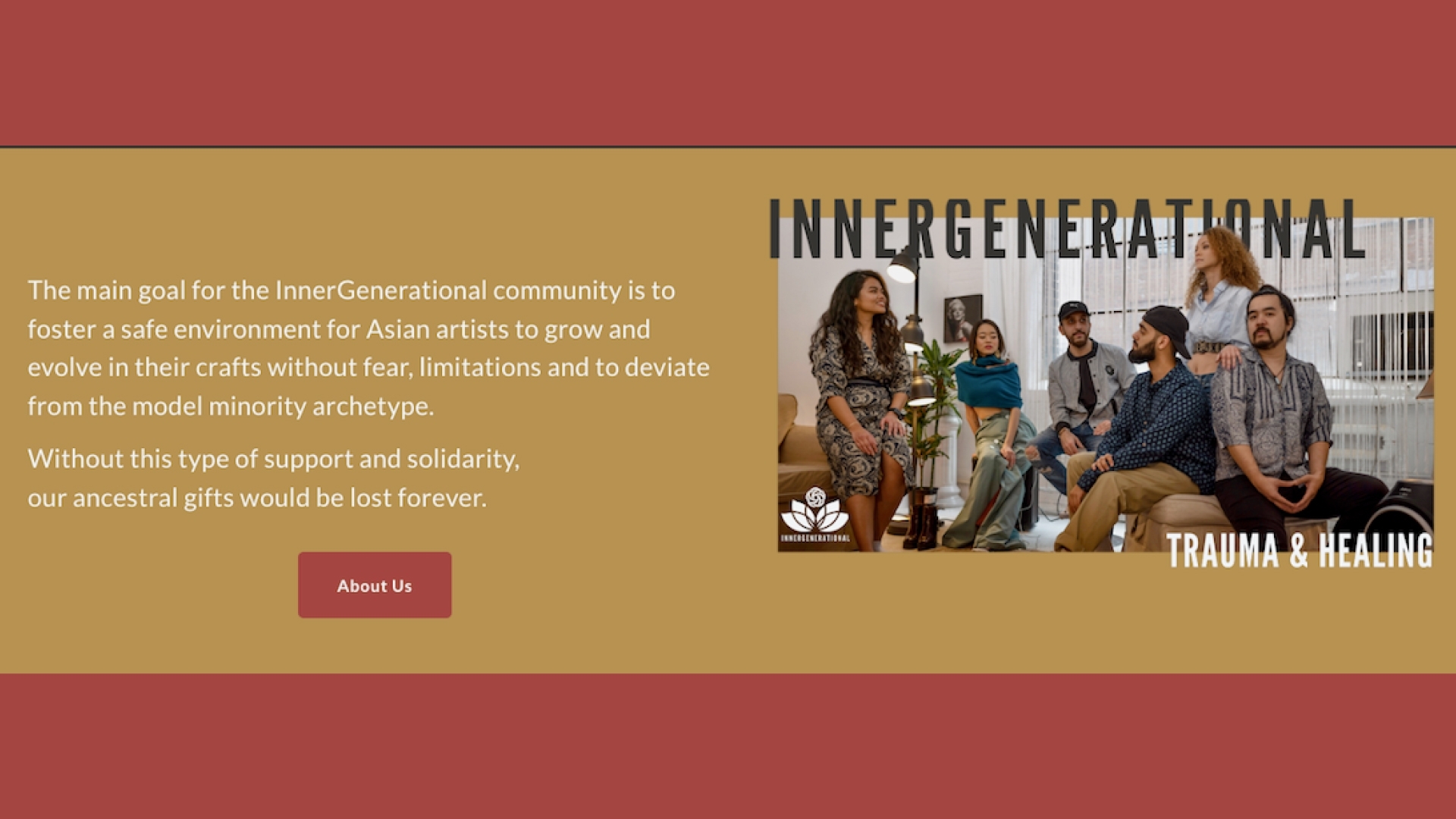on
BY SIMONE J. SMITH
“What human beings cannot contain of their experience—what has been traumatically overwhelming, unbearable, unthinkable—falls out of social discourse, but very often onto and into the next generation as an affective sensitivity or a chaotic urgency.” Gerard Fromm
Each performer had their own way of interacting with the audience; the audience sat, captivated by the lights, the sounds, the props; one had the eloquence of a politician, respectfully he commanded the stage like a military leader; the other used humour, and silliness turning triggering moments into thoughtful ones. The feminine energy utilized her authenticity like an author reading a new story, and although her physical being did not take up space, her presence, and personality engulfed the room, leaving everyone removed from themselves.
Last Friday, I attended an incredible stage performance coined “InnerGenerational Trauma and Healing Project,” directed and produced by Anto Chan, a young man who we will learn about in just a bit.
The InnerGenerational Trauma and Healing Project is a series of curated shows that ran through May, which marked Asian Heritage Month in Canada. The artists addressed mental health issues, including the pressures they have felt to assimilate to North American culture. Through their work, InnerGenerational explores lineage and complex family histories to find where they belong in this work.
The main purpose of this project was to engage a multi-generational audience in the Asian community, with an emphasis on Asian youth. They strategically designed a program that would draw in Asian audiences through representation that reflects them.
How this project came to be was actually by fluke. I had a chance to dialogue with the project producer, and together, we tapped into the soul of the show.
“In our current reality, being open and expressive around mental health issues in the Asian community is so important as we face uncertainties in the future. We want to make a positive impact, strong community connections and acknowledge the support of the Canada Council of the Arts in making this project possible.”
Anto Chan (InnerGenerational Trauma Producer)
Anto Chan has travelled across North America and Asia, inspiring his audiences through laughter and storytelling. He has over 20 years of experience working with families and has a diploma and degree in Early Childhood Education.
He performed in the independent Stand-up Comedy tour “Seeping in our Car Tour,” and won Best Independent Venue at the Shanghai in Ottawa’s Comedy Awards (2010), the 2021 iHeart Jokes award for “Open Mic Hero” and was a finalist in the Hong Kong International Comedy Festival 2014.
He has made appearances on Omni News, CBC Radio, XM Radio, RTHK, TVB Pearl, Proper TV and his stand-up comedy video GOW, which was featured on the front page of Reddit. He also had the opportunity to be featured on “Coming to the Stage, Season Four ” in LA.
“I went to type in Intergenerational on Google, and typed inner generational. When I read what intergenerational trauma was, it all came together. I reflected on my life and the work that I had to do inside myself. It helped me to really connect to my I-innergenerational trauma.”
The concept of innergenerational trauma was first recognized around 1966. This phenomenon is also known as transgenerational trauma, and references a shared experience among a group of people, such as Black people or refugees.
“My goal was to share some insights into the relevance of generational trauma. Are there patterns? Are those patterns breakable? Do we have more resources now than our parents did?”
So, he came up with the concept and headlining performers.
“It was a personal grant, but I made it a community based project,” Anto tells me.
With diverse perspectives and performances highlighting the second-generation Asian experience, a collective of Toronto-based artists have formed the InnerGenerational Trauma project.
Gautam Siddharth Tiwari
Emerging onto the music scene with his debut release “Midas (Money Will)”, Siddartha delivers thought provoking tracks and vibrant narratives – depicted through his skilled lyricism. He has been compared to the likes of Kendrick Lamar and J. Cole, and has rapidly been garnering attention and acclaim. His performance on Friday night shows why and how he is firmly solidifying himself as an emerging artist to watch out for.
Shqdel
Embodying “sing-copation’, she is an interlude in human form releasing energy through visual, sonic and lyrical offerings. She has the ability to transform melodic wordplay and run-on sentences into poems and songs. The audience sat in awe as she shared her internal dialogue and observations of the inner and external world through “sonic scribbles.”
She has shared her pieces at the TEDx UTSC conference and headlined for Ari Lennox at the Manifesto Festival in 2019. She has performed shows with Street Art Toronto, and Frequency Fridayz Poetry Night put on by RISE Edutainment. She had a way of connecting with her audience, leaving us all wanting to hear more.
“Trauma is so overwhelming,” Anto explains. “We don’t see the gifts that they actually are. This show is about sharing stories, not just doing what I think will please an audience. It is about telling personal stories that shape the artist’s performance.
I wanted the right people to see it, not just anyone to see it. It is about the quality of the minds that come to the show. I want people to learn in the experience. These experiences are not just my own.”
It was truly an enjoyable evening that included art by Ruth Susi, and an appearance by Shahvar, a multidisciplinary visual and recording artist. The wonderful night would not have been possible without the collaborative help of: R.I.S.E. Edutainment, Canadian Council for the Arts, 918 Bathurst, Asian Resilience Collective Canada, Infinity Strings, Don on Danforth, and a long list of sponsors who helped them hold it down.
If you are motivated to work through your innergenerational trauma, visit the team at https://www.innergeneration.com/, and hopefully you can catch the last performance this Friday May 27th, 2022 at 918 Bathurst.
Stay in the loop with exclusive news, stories, and insights—delivered straight to your inbox. No fluff, just real content that matters. Sign up today!
We, as humans are guaranteed certain things in life: stressors, taxes, bills and death are the first thoughts that pop to mind. It is not uncommon that many people find a hard time dealing with these daily life stressors, and at times will find themselves losing control over their lives. Simone Jennifer Smith’s great passion is using the gifts that have been given to her, to help educate her clients on how to live meaningful lives. The Hear to Help Team consists of powerfully motivated individuals, who like Simone, see that there is a need in this world; a need for real connection. As the founder and Director of Hear 2 Help, Simone leads a team that goes out into the community day to day, servicing families with their educational, legal and mental health needs.Her dedication shows in her Toronto Caribbean newspaper articles, and in her role as a host on the TCN TV Network.













